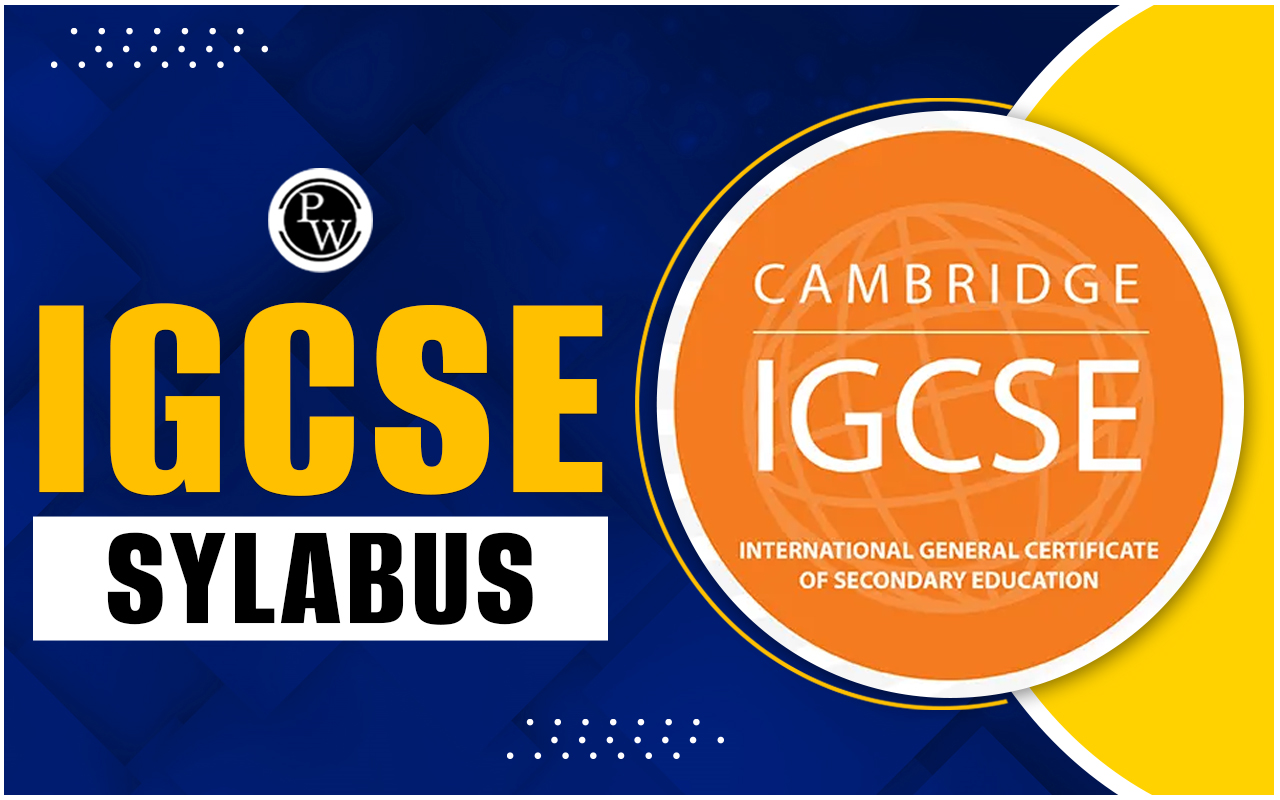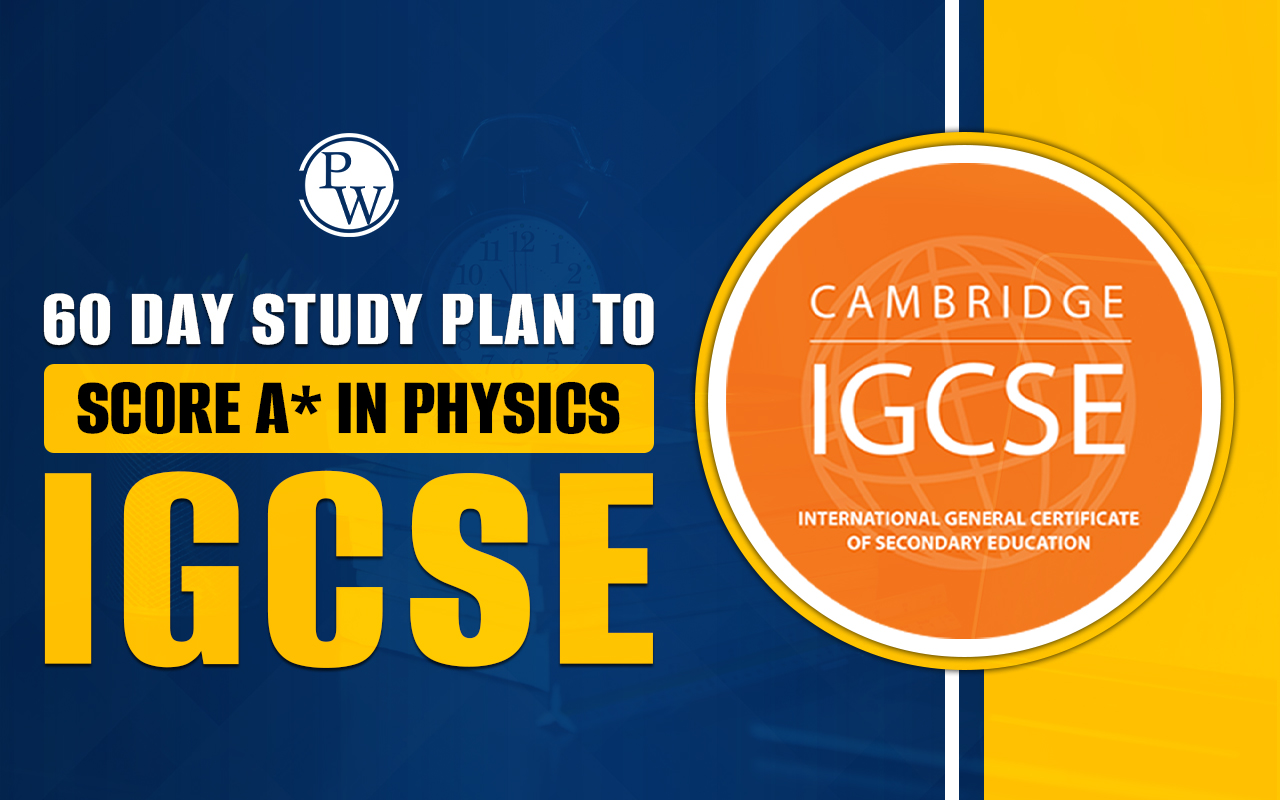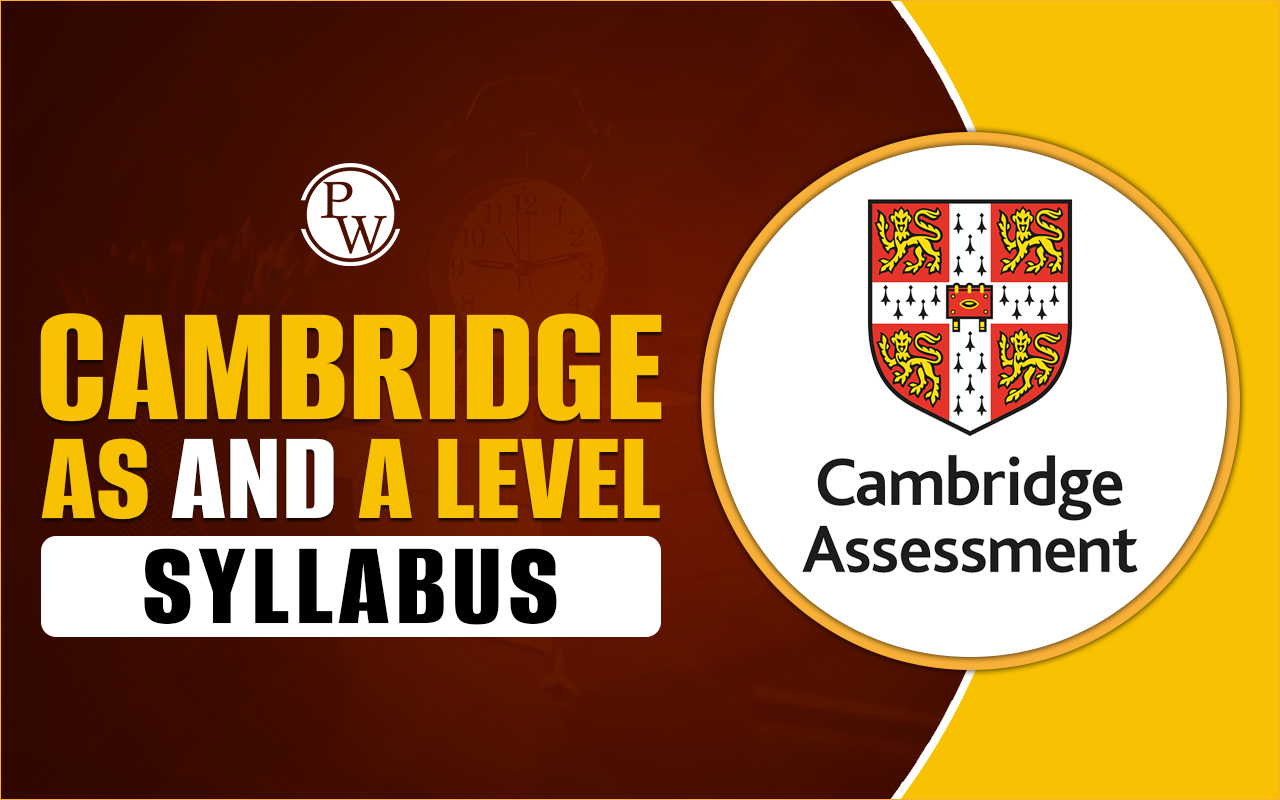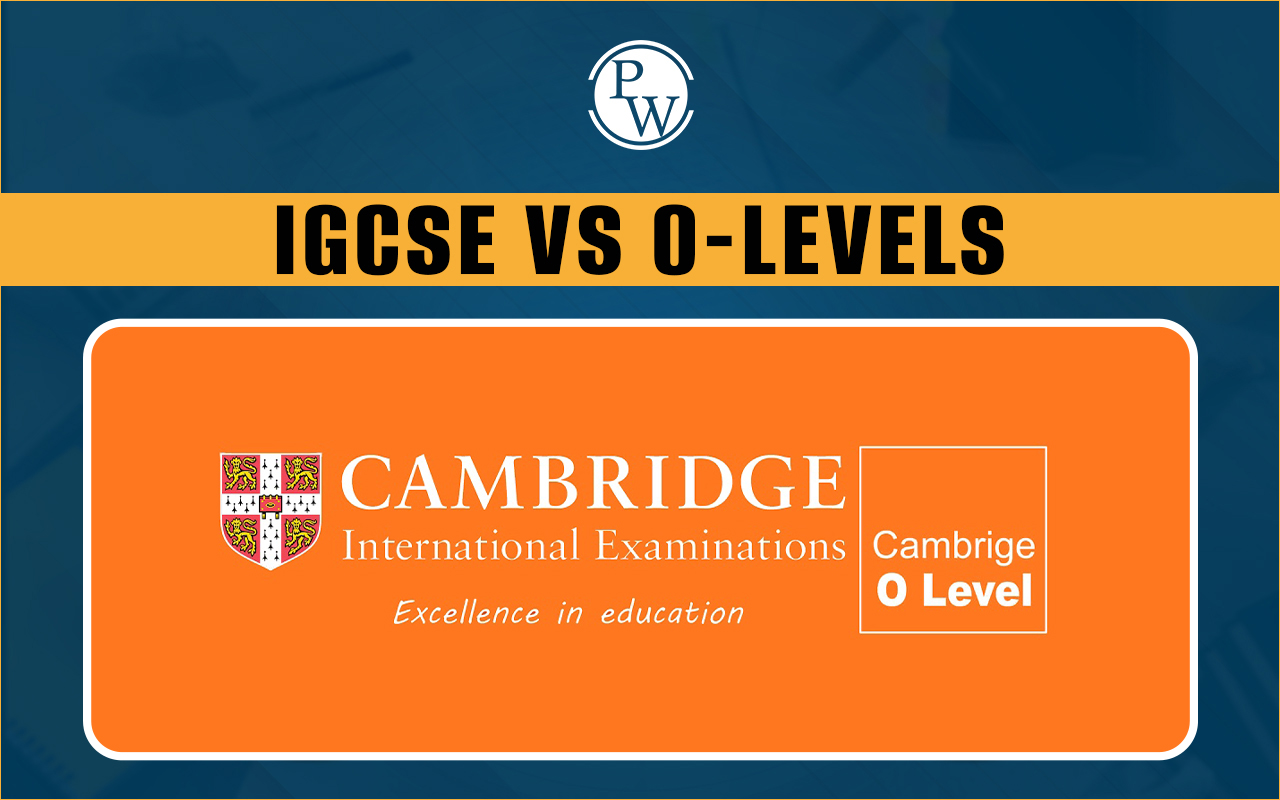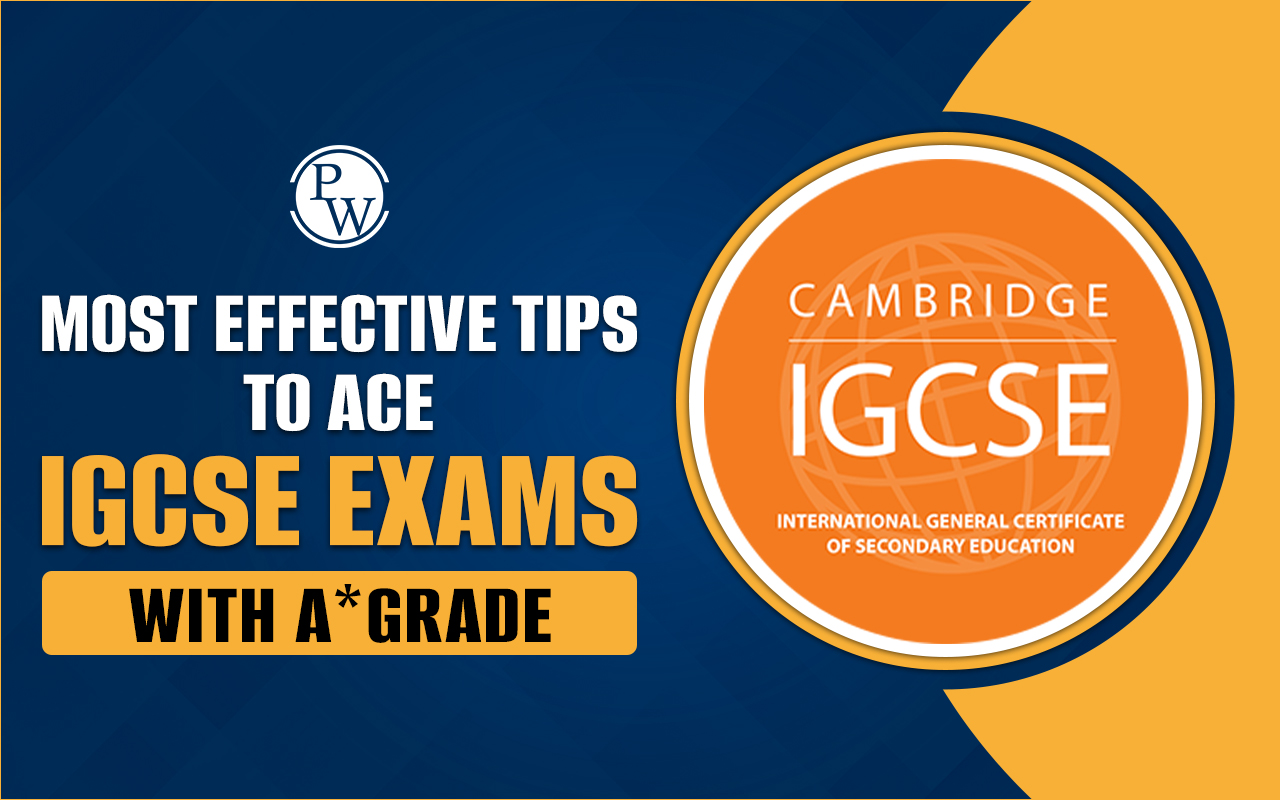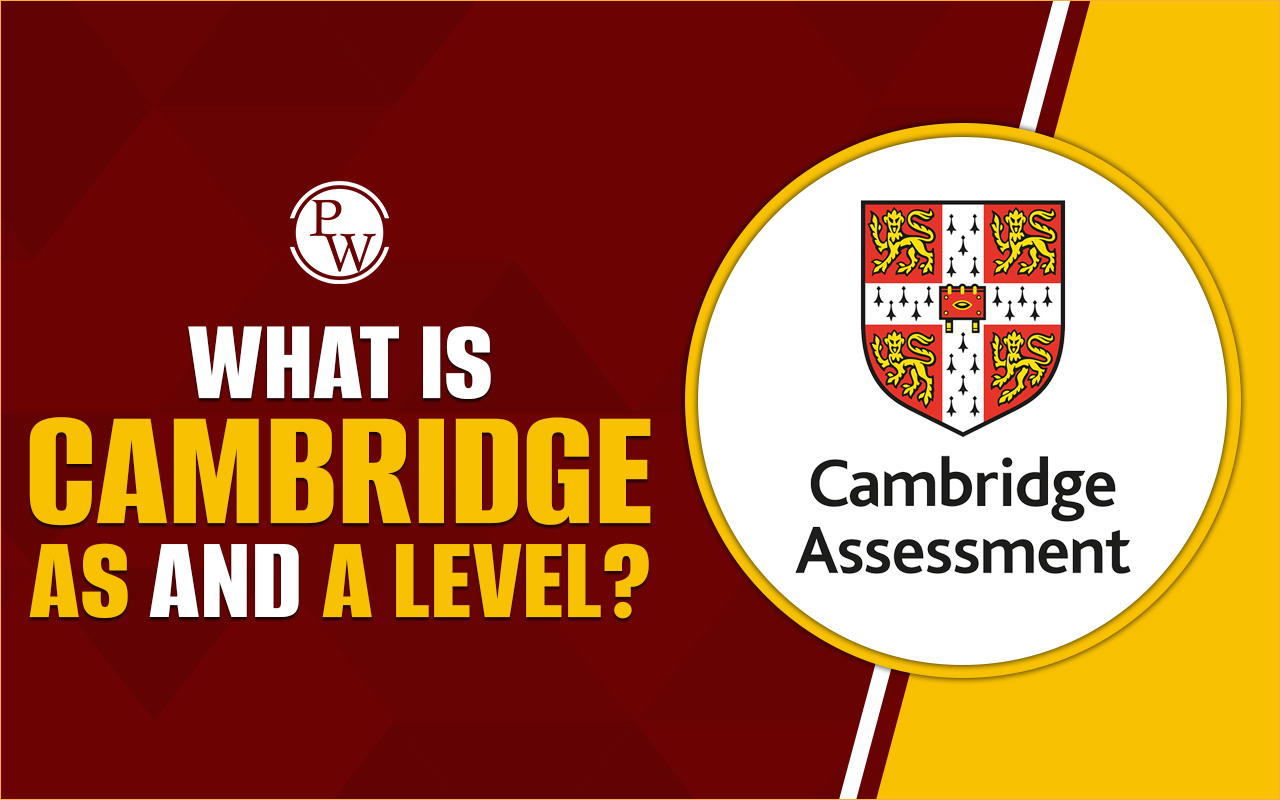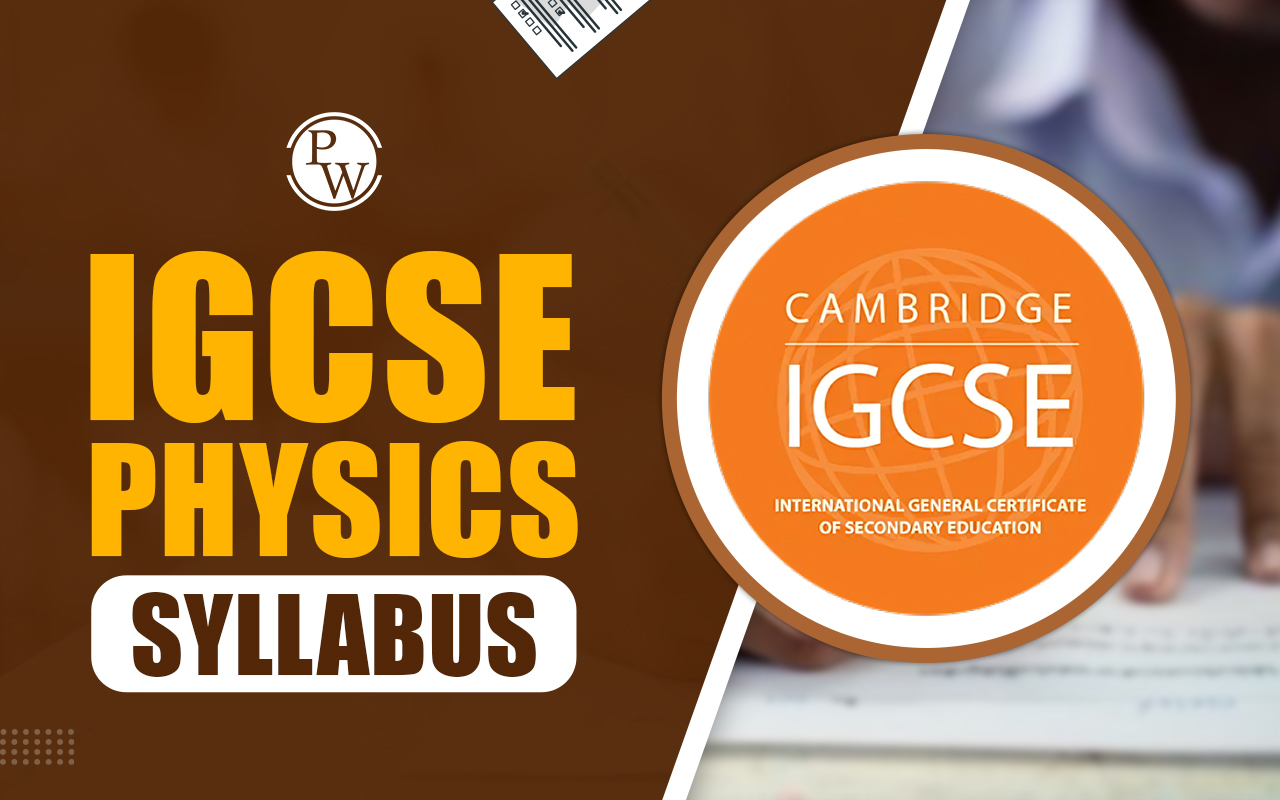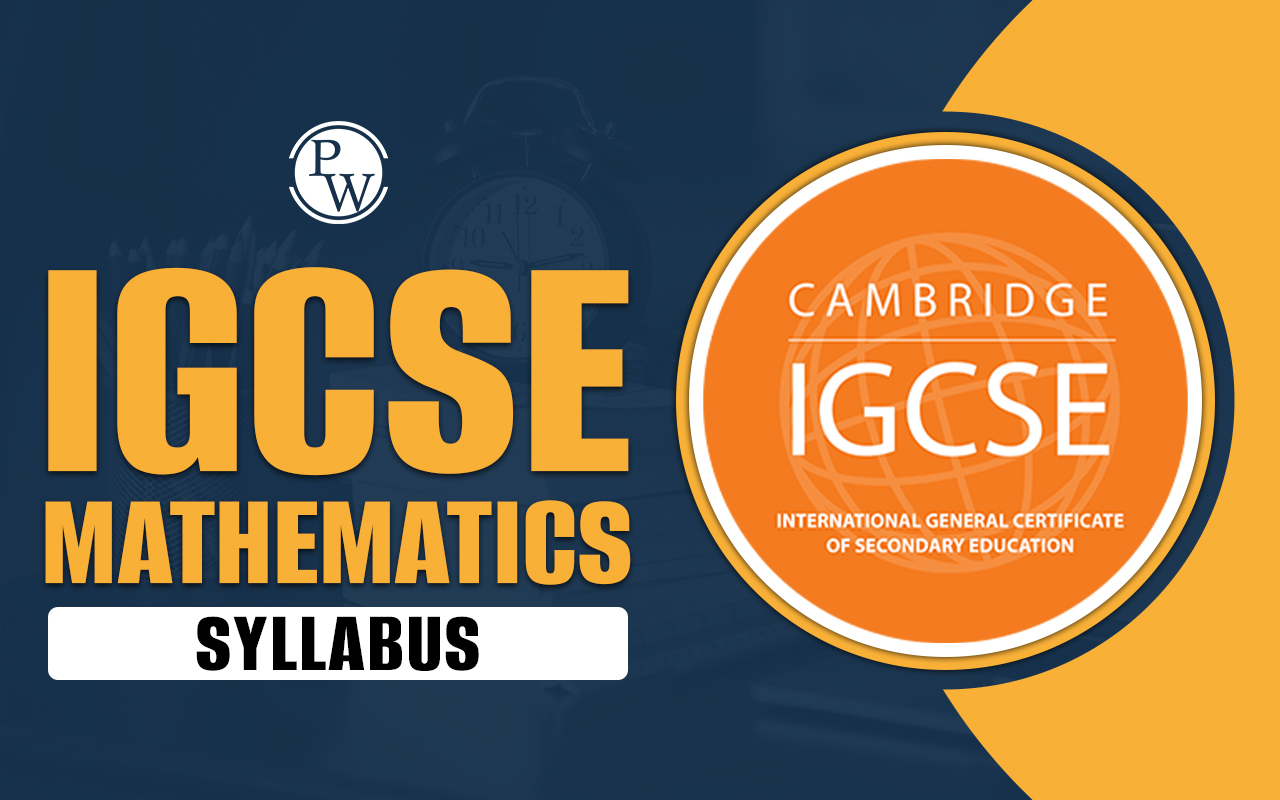
IGCSE Physics syllabus helps students to explore the fundamental principles of physics, including motion, forces, energy, waves, and electricity. It focuses on developing students’ understanding of the laws of physics and how they apply them to real-world situations. The syllabus provides a balanced mix of theory and practical experiments to ensure students can apply their knowledge to solve problems.
Students can choose between Core or Extended levels, depending on their academic goals. The assessments include multiple-choice questions, structured answers, and practical tests that evaluate their theoretical knowledge and experimental skills. Here, students will also find information on the Weighting of Assessment Objectives, both as a percentage of the qualification and across each component, to guide students on how different skills are evaluated and how each paper impacts their final grade.IGCSE Physics Syllabus 2024 Overview
Candidates study the following topics: 1 Motion, forces and energy 2 Thermal physics 3 Waves 4 Electricity and magnetism 5 Nuclear physics 6 Space physicsCambridge IGCSE Physics (0625) Syllabus Official PDF
The Cambridge IGCSE Physics (0625) Syllabus provides a comprehensive guide for students to understand key physics concepts. It outlines the core and extended content, assessment objectives, and exam structure, ensuring students can prepare effectively for their exams. The syllabus emphasizes both theoretical knowledge and practical skills, helping students build a solid foundation in physics. Additionally, it includes details on the weighting of different assessment components, making it easier to plan study efforts. For those looking for detailed information, the PDF link is available below.
IGCSE Physics Core and Extended Assessment
The assessment offers two levels—Core and Extended—allowing students to choose based on their abilities. Core is for foundational understanding, while Extended covers more complex content. Full details are provided below| Paper | Duration | Marks | Question Type | Weightage |
| Core Assessment | ||||
| Paper 1: Multiple Choice (Core) | 45 minutes | 40 | 40 four-option multiple-choice questions | 30% |
| Paper 3: Theory (Core) | 1 hour 15 minutes | 80 | Short-answer and structured questions | 50% |
| Extended Assessment | ||||
| Paper 2: Multiple Choice (Extended) | 45 minutes | 40 | 40 four-option multiple-choice questions | 30% |
| Paper 4: Theory (Extended) | 1 hour 15 minutes | 80 | Short-answer and structured questions | 50% |
IGCSE Physics Practical Assessment
Students choose between Paper 5 (Practical Test) or Paper 6 (Alternative to Practical), which assess their practical skills and application of experimental knowledge. Further details on practical assessments are provided below.| Paper | Duration | Marks | Question Focus | Weightage |
| Paper 5: Practical Test | 1 hour 15 minutes | 40 | Based on experimental skills in Section 4 | 20% |
| Paper 6: Alternative to Practical | 1 hour | 40 | Based on experimental skills in Section 4 | 20% |
IGCSE Physics Assessment Objectives Overview
Assessment objectives test knowledge, problem-solving, and practical skills. These objectives ensure students have a balanced understanding of theoretical and experimental concepts. Detailed explanations are given below. AO1: Knowledge with Understanding- Demonstrate knowledge of scientific facts, laws, definitions, and theories.
- Apply scientific terminology, symbols, and units correctly.
- Use scientific instruments and understand their applications and safety measures.
- Relate scientific and technological concepts to social, economic, and environmental issues.
- Apply knowledge to new situations across different syllabus areas.
- Organize and present information from various sources.
- Translate information between symbolic, graphical, and numerical formats.
- Analyze data, identify trends, and form logical conclusions.
- Make predictions and solve quantitative problems.
- Apply principles to unfamiliar contexts in a logical manner.
- Safely use scientific apparatus, techniques, and materials.
- Plan experiments and record accurate observations.
- Interpret and evaluate experimental data.
- Suggest improvements to experimental methods.
Weighting for Assessment Objectives as a Percentage of the Qualification
Each assessment objective, such as knowledge and problem-solving, is weighted differently in the final qualification. Detailed information on how these objectives are weighted is provided below.| Assessment Objective | Weighting in IGCSE % |
| AO1 Knowledge with understanding | 50% |
| AO2 Handling information and problem-solving | 30% |
| AO3 Experimental skills and investigations | 20% |
| Total | 100% |
Weighting for Assessment Objectives as a Percentage of each Component
Each assessment paper has specific weightings for assessment objectives, showing how much each paper contributes to the overall grade. Full breakdowns of these percentages are available below.| Assessment Objective | Weighting in components % |
| Papers 1 and 2 | |
| AO1 Knowledge with understanding | 63% |
| AO2 Handling information and problem-solving | 37% |
| AO3 Experimental skills and investigations | - |
| Total | 100% |
Details of the IGCSE Physics Assessment
The IGCSE Physics assessment includes multiple-choice and theory papers, along with practical assessments that test both Core and Extended content. Full assessment details are discussed below.Core and Extended Assessment Overview
The IGCSE syllabus provides separate assessments for Core and Extended levels, with different papers and weightings tailored to each. Detailed information on these assessments is provided below.| Assessment Type | Paper | Duration | Marks | Weightage | Description |
| Core Assessment | Paper 1: Multiple Choice (Core) | 45 minutes | 40 marks | 30% | 40 compulsory multiple-choice questions based on Core content. Externally assessed. |
| Paper 3: Theory (Core) | 1 hour 15 minutes | 80 marks | 50% | Compulsory short-answer and structured questions based on Core content. Externally assessed. | |
| Extended Assessment | Paper 2: Multiple Choice (Extended) | 45 minutes | 40 marks | 30% | 40 compulsory multiple-choice questions based on Core and Supplement content. Externally assessed. |
| Paper 4: Theory (Extended) | 1 hour 15 minutes | 80 marks | 50% | Compulsory short-answer and structured questions based on Core and Supplement content. Externally assessed. |
How to Choose Cambridge IGCSE Subjects
Practical Assessment
Practical assessments test students’ ability to apply experimental techniques and observations, either through hands-on lab work or alternative practical exams. Full details on these assessments can be found below.| Assessment Type | Paper | Duration | Marks | Weightage | Description |
| Practical Assessment | Paper 5: Practical Test | 1 hour 15 minutes | 40 marks | 20% | Candidates perform experiments in a laboratory setting. Externally assessed. |
| Paper 6: Alternative to Practical | 1 hour | 40 marks | 20% | Candidates answer questions about experimental skills. Externally assessed. |
IGCSE Physics Syllabus Preparation Tips
Know Your Syllabus - The syllabus is your best guide. Use it to understand every point you need to study. Instead of relying solely on textbooks, check each bullet point in the syllabus and make sure you can explain it clearly. Master Definitions - Physics may have a lot of conceptual questions, but definitions can earn you quick marks. Collect all important definitions and learn them thoroughly to avoid missing out on easy points. Formula Practice - Create your own formula sheet as you study. Ensure you understand how and when to apply each formula in problem-solving situations. Writing down steps in calculations can help secure partial marks, even if the answer is wrong. Practice Past Papers - Solving IGCSE past papers helps improve your timing, accuracy, and familiarity with exam structure. It's important to practice all three types of papers—multiple-choice, structured questions, and practical—to boost your performance. Use a Mistakes Log - Keep track of your mistakes in past papers. Write down the error, understand why it happened, and revisit those questions later. This method helps you learn from your mistakes and strengthens weak areas. Focus on High Weightage Concepts - Make sure your concepts are crystal clear. If you're unsure about something, revisit it immediately by watching videos or reading other resources. Don't leave any confusion hanging. Step-by-Step Calculations - Always write down each calculation step. Even if your final answer is wrong, you'll still earn partial marks for the correct method. This is particularly important for multi-step questions. Improve Time Management - During your exam, if you're stuck on a problem, skip it and move on. Use your time wisely, and come back to difficult questions at the end. Prioritize answering questions you know well first. Master Graphs and Experiments - Many questions involve drawing graphs or describing experiments. Practice drawing accurate graphs and understanding the principles behind common experiments.| International Boards Other Related Topics | |
| IGCSE Chemistry Syllabus | IGCSE Biology Syllabus |
IGCSE Physics Syllabus FAQs
What is the weighting of the assessment objectives in IGCSE Physics?
The IGCSE Physics syllabus assesses three main objectives: knowledge and understanding (40-50%), handling information and problem-solving (30-40%), and experimental skills and investigations (20%).
How important is formula memorization for the IGCSE Physics exam?
Memorizing key formulas is critical since IGCSE Physics exams do not provide formula sheets. Students should be able to recall and apply formulas accurately.
How are students assessed in IGCSE Physics?
Students are assessed through multiple papers, which may include theory-based questions (Papers 1, 2, 3, or 4) and practical or alternative-to-practical papers (Papers 5 or 6), depending on their chosen assessment route (Core or Extended).
What is the difference between the Core and Extended curriculum in IGCSE Physics?
The Core curriculum provides a basic understanding of physics, while the Extended curriculum includes more advanced topics and offers the possibility to achieve higher grades, such as A*.
What resources should students use to prepare for IGCSE Physics?
Students should use the syllabus as their guide, along with textbooks, past papers, and reliable online resources. They must also take mentorship from the PW International Board faculties for the best results.
🔥 Trending Blogs
Talk to a counsellorHave doubts? Our support team will be happy to assist you!

Check out these Related Articles
Free Learning Resources
PW Books
Notes (Class 10-12)
PW Study Materials
Notes (Class 6-9)
Ncert Solutions
Govt Exams
Class 6th to 12th Online Courses
Govt Job Exams Courses
UPSC Coaching
Defence Exam Coaching
Gate Exam Coaching
Other Exams
Know about Physics Wallah
Physics Wallah is an Indian edtech platform that provides accessible & comprehensive learning experiences to students from Class 6th to postgraduate level. We also provide extensive NCERT solutions, sample paper, NEET, JEE Mains, BITSAT previous year papers & more such resources to students. Physics Wallah also caters to over 3.5 million registered students and over 78 lakh+ Youtube subscribers with 4.8 rating on its app.
We Stand Out because
We provide students with intensive courses with India’s qualified & experienced faculties & mentors. PW strives to make the learning experience comprehensive and accessible for students of all sections of society. We believe in empowering every single student who couldn't dream of a good career in engineering and medical field earlier.
Our Key Focus Areas
Physics Wallah's main focus is to make the learning experience as economical as possible for all students. With our affordable courses like Lakshya, Udaan and Arjuna and many others, we have been able to provide a platform for lakhs of aspirants. From providing Chemistry, Maths, Physics formula to giving e-books of eminent authors like RD Sharma, RS Aggarwal and Lakhmir Singh, PW focuses on every single student's need for preparation.
What Makes Us Different
Physics Wallah strives to develop a comprehensive pedagogical structure for students, where they get a state-of-the-art learning experience with study material and resources. Apart from catering students preparing for JEE Mains and NEET, PW also provides study material for each state board like Uttar Pradesh, Bihar, and others
Copyright © 2026 Physicswallah Limited All rights reserved.
